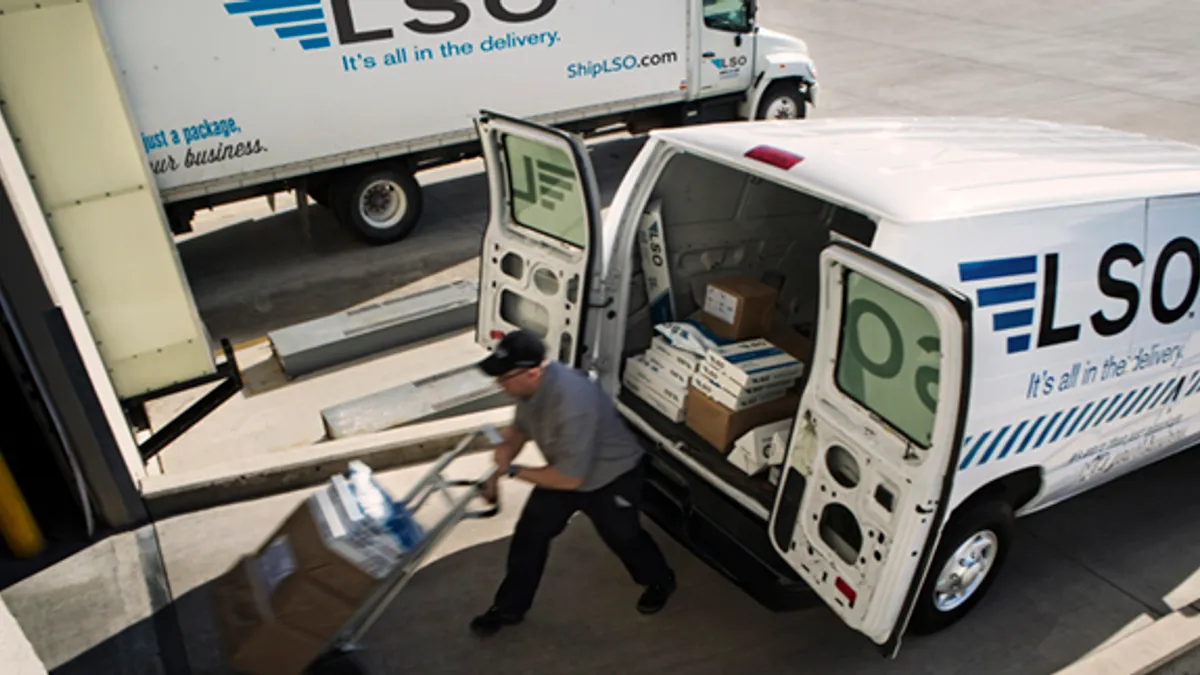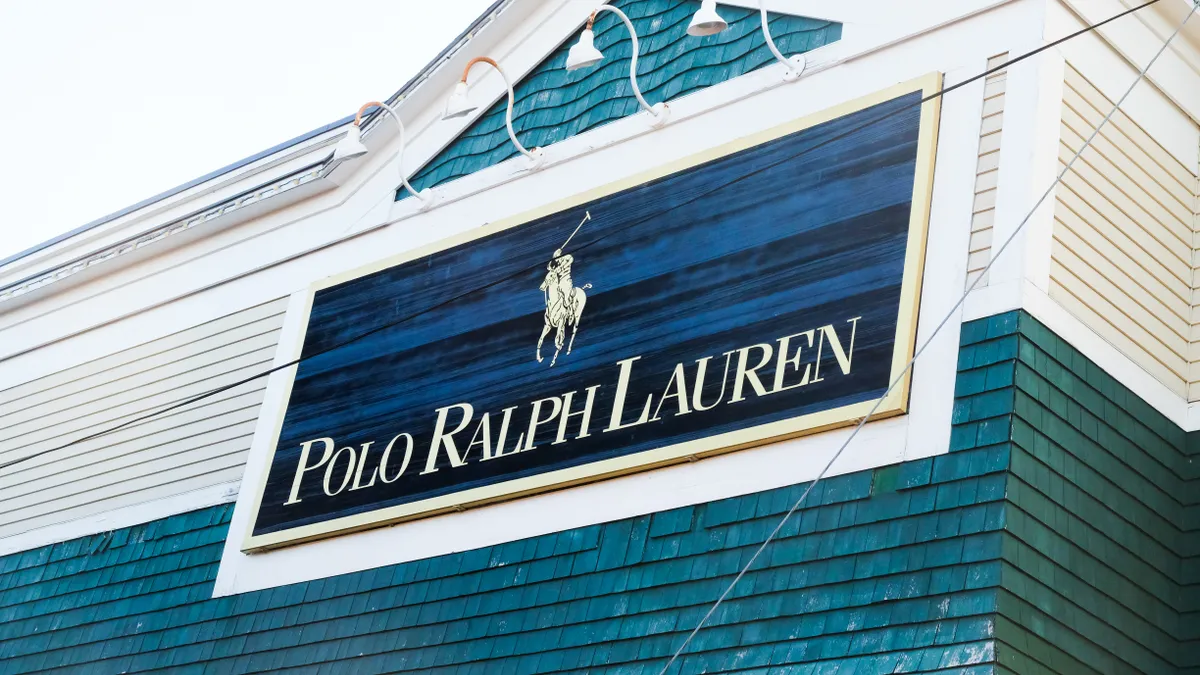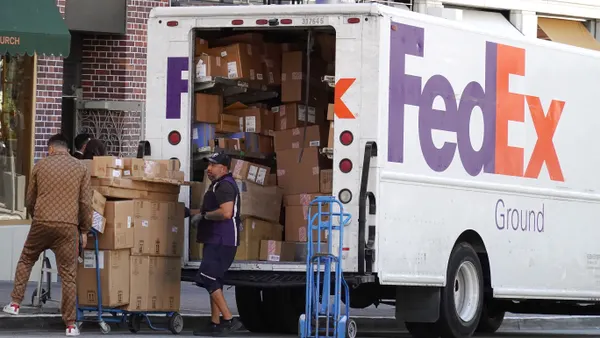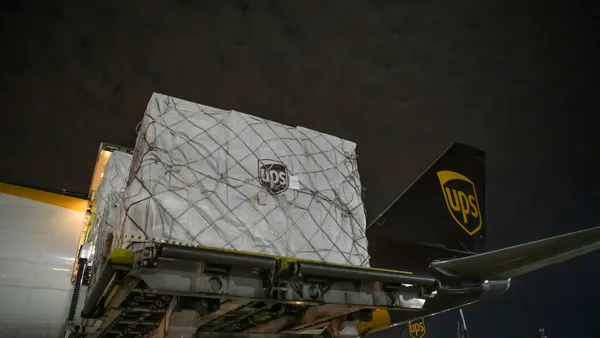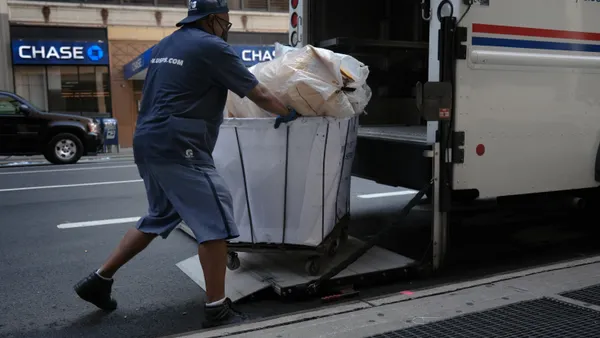Dive Brief:
- Lone Star Overnight is exploring the possibility of expanding its delivery coverage into the Chicago-Milwaukee area and Atlanta this year, President and COO Sean O'Connor said in an interview. The expansions could occur in Q1 for Chicago-Milwaukee and later this year or early 2023 for Atlanta, he added.
- The regional parcel carrier, whose coverage is concentrated in the Southwest, expanded into five states in 2021. "I really anticipate the Chicago-Milwaukee area, tying that together with what we did last year in St. Louis and Kansas City, will really help us when it comes to growth," O'Connor said.
- The potential expansion is just one of the company's priorities for 2022. O'Connor, who became president in December and has held roles at FedEx Ground and GLS, is also pushing for LSO to provide better information for its customers, standardize facility processes and potentially implement more automation. "I call it the Big Mac theory, so making sure that everything that we do, and every one of our facilities, looks and feels and tastes the same," he said.
Dive Insight:
Regional parcel carriers have expanded through the pandemic as higher prices and tight capacity push shippers to seek alternatives from the FedEx-UPS duopoly. Servicing Chicago and Atlanta would help Texas-based LSO attract more customers looking for new options.
LSO's coverage area currently reaches roughly 13% of the U.S. population after expanding into parts of Louisiana, Arkansas, Missouri, Illinois and Kansas in 2021.
"I don't think that people down here in Texas realize what type of business opportunities are up in that Chicago loop," O'Connor said.
While a boom in demand provides new expansion opportunities for LSO, the company will have to balance growth with reliable service — something that's become more difficult for carriers as consumer demand remains volatile. That's why accurate volume forecasts from shippers is critical for LSO, O'Connor said, so the carrier can adequately prepare for the peak season influx of packages. LSO's clients include Urban Outfitters and Nordstrom, among others.
This past peak season, shippers did provide LSO with the volume they originally forecasted, according to O'Connor. However, instead of a gradual ramp-up, LSO's holiday package surge came in full force on the second week of November and dropped sharply the week of Christmas. This was unusual, O'Connor said, compared to his FedEx Ground days in which volumes stayed high until three days prior to the holiday.
Companies heeded warnings from carriers like UPS to ship earlier in the peak season to ensure holiday gifts arrived to their destinations on time amid upstream supply chain congestion. This approach helped keep supply chains afloat during peak, but it wasn't easy to manage from a small parcel carrier's perspective, O'Connor said.
"If a customer has given us 1,000 packages a day, and they say they're going to give you 3,000 a day in December week one, okay, maybe you can do that," he said. "But when it shows up in November week two, and all of them increased by 300% or 100% overnight, it's just impossible."
Going forward, O'Connor said the company may "have to make some tough decisions" if some customers' volume forecasts can't be trusted. Carriers have become more strict with shippers on unplanned deliveries as last-mile capacity has shrunk and market dynamics are in their favor. High levels of unplanned volumes led UPS to place shipping limits on Nike and Gap for Cyber Monday in 2020, for example.
"We can't allow every shipper to be impacted by the inabilities of four or five shippers," O'Connor said. "In a business our size, four or five customers can make the difference between success and failure."
Correction: A previous version of misstated a few of the companies LSO currently works with. The story has been updated with a more current list.
Editor's note: This story was first published in our Logistics Weekly newsletter. Sign up here.



